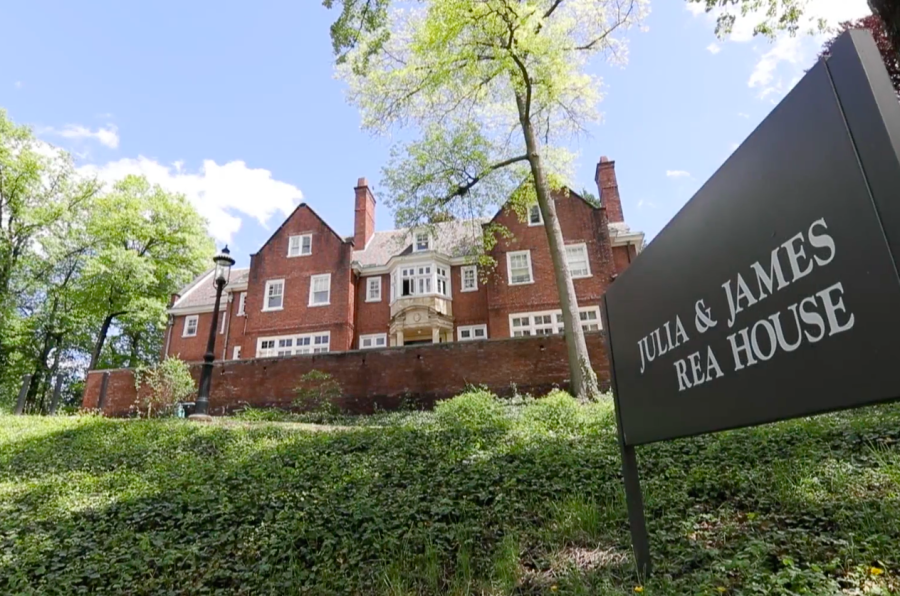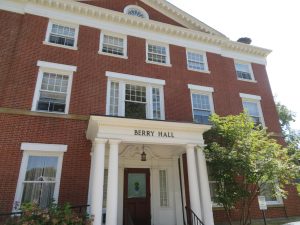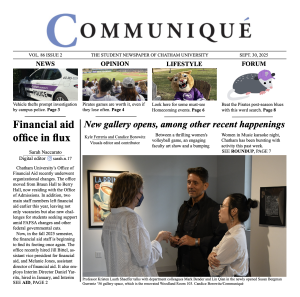Issues between Chatham maintenance and residents exasperated by pandemic, lack of communication
March 18, 2022
Volatile winter weather, the COVID-19 pandemic and lack of clear communication have contributed to frustrations among student residents and Chatham University’s facilities staff alike.
Throughout the beginning of the spring semester, as well as during the fall 2021 semester, some students have reported living with unattended problems in the residence halls, including issues with heating, smoke alarms and insects.
Robert DuBray, assistant vice president of Facilities and Public Safety, asks students for patience and collaboration; the department only has 10 staff members to oversee 64 buildings, 147 apartments and approximately 40,000-plus work orders a year.
“We do not want your problems to drag on. We need to find a better way to communicate the concerns to us in a timely fashion so we can respond,” DuBray said.
On Jan. 21, Cassidy Kinney ’25 and Emi Perdan ’24 were sleeping in their Rea House room when they were abruptly woken up at 2 a.m. to the sound of the smoke alarm blaring. Water from radiators above their room was leaking down into their smoke alarm, causing it to go off. Due to the early hour, Public Safety arrived and disconnected the smoke alarm to stop the beeping.
After the incident, Kinney and Perdan said they spoke to Residence Life and Public Safety about the issue. According to the students, officers who arrived to fix the problem said they would file a report with facilities, and Residence Life staff told them they would also submit a work order. However, the issue was not resolved by facilities for more than a week.
“Things happen at night that Residence Assistants aren’t equipped to deal with because it’s not in their job description. Public Safety isn’t always able to deal with it, so maintenance is something that’s kind of necessary,” Kinney said.
A delay in facilities addressing student concerns can be for a multitude of reasons, including staff availability, work order prioritization and department resources.
“After hours, most of our people are gone by 3 p.m., but we always have one [tradesman]. After hours, all facility calls come into Public Safety and they assess the situation,” DuBray said. “If it’s something the officers can assist with, typically they are responsible for.”
As for prioritization of work orders, it depends on how important the issue is to student life and safety.
“It’s the only way we can do it. First, we have to define what the need is. If it jeopardizes life, safety or buildings, we have to put all other matters on hold until we correct it,” DuBray said.
Examples include the recent heating issues in the Art & Design Center and the water main break on Chatham’s Shadyside campus on March 7. Both issues were serious and placed as a top priority for the department.
Additionally, supply chain shortages due to COVID-19 can impact how quickly issues are resolved.
“With the pandemic, it’s just so much harder,” DuBray explained. “There’s so many variables involved with the pandemic and shipping lead times. Nobody has any supplies.”
With that said, DuBray encourages students to submit work orders themselves directly to maintenance through the ChathamU app because this is the quickest way to have a problem addressed.
Other problems aren’t able to be easily solved by the facilities staff. Sometimes issues are above the staff’s experience level, but bringing in contractors can be a “big mess,” according to DuBray.
This can be the case for issues like pests. Last October, Jocelyn Pocernich ‘25 and her roommates experienced a wasp infestation through their Rea House room’s air conditioning unit.
Pocernich said she filed multiple work orders to remedy the issue but did not receive the help she needed. Eventually, the problem became overwhelming with 30-plus wasps, and the students attempted to solve the problem themselves with a can of Raid insect killer and sealing off the air conditioner with plastic and duct tape.
“It was a health hazard to have stinging wasps flying around you while you’re trying to study or while you’re asleep. They’d fall on the ground, and we’d almost step on them all the time,” Pocernich said. “We filed multiple work orders, at least three of them, if not four. I don’t know if maintenance ever made it out, but it never really got solved.”
For pest and insect control, the facilities staff sometimes needs to contract outside support to address these problems, DuBray said.
Currently, the maintenance department is trying to improve what it calls its “red card” system to help communication with residents. When members of the facilities staff enter a student’s room to address an issue, they are supposed to leave a red card detailing what they fixed to notify the resident that the problem was addressed.
“We’re working on making that better,” DuBray said, admitting that the cards are not always left behind for students. Consequently, sometimes students think that facilities never came and checked out a problem, when in fact someone did.
To submit work orders, Go to the “Resources” tab on the ChathamU app. Select “Request Maintenance” and fill out the form accordingly.








